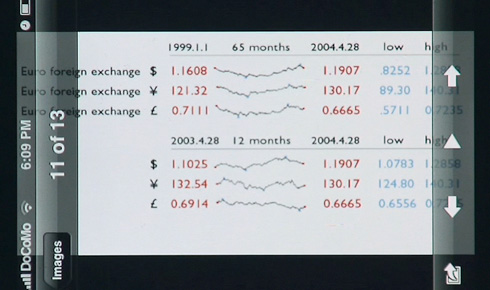 Microsoft Corporation has made an offer to Yahoo, inc. for $44.6 “Bazillion” dollars (...it might as well be). This confirms that Microsoft has begun the floundering process by which they are snatching what they can in a bitter realization that Apple has won the computer operating software battle for now, and perhaps the entire war. The fact that Microsoft’s stock continued to drop after the announcement, shows how much faith their stakeholders have in the decision as well.
Microsoft Corporation has made an offer to Yahoo, inc. for $44.6 “Bazillion” dollars (...it might as well be). This confirms that Microsoft has begun the floundering process by which they are snatching what they can in a bitter realization that Apple has won the computer operating software battle for now, and perhaps the entire war. The fact that Microsoft’s stock continued to drop after the announcement, shows how much faith their stakeholders have in the decision as well.
While the obvious signs of Microsoft’s future demise is evident in their slow, torturous, pre-recession slide into stock hell, I first really, and truly believed that Microsoft lost the PC war right after the holidays, when two hard-core IT professionals remarked on the beauty of the shiny new iMac in our New York Bunker. They also gleefully chortled that they now “love Macs” and proudly own them at home. As soon as the foot soldiers of Microsoft: the IT dudes, begin to jump ship, something is wrong in La La Land. With all that said, this slow, calculated downfall will not be without a fight. Expect hordes of viruses invading our precious Macs like ants to a picnic basket full of honey covered iPhones. Remember, for every IT person who adores their new Mac, there will likely be several others who will do their best to destroy Apple machines with tawdry new viral treats. What else are they supposed to do when Microsoft viruses are no longer pressworthy?
Which brings me back to the impending Microsoft/Yahoo connection. It's like asking a bear to french-kiss a beagle. Yahoo has recently begun to reach the nerds they’ve craved since Google started giving them noogies on the playground with the unveiling of pipes, a cool mashup tool. On the other side of the playground, Microsoft realized that the only thing that they still had a stronghold on was their precious Microsoft Office software, so ensconced in the collective of business as we know it, it would take generations for them to screw it up. Especially its Microsoft Office Home & Business. However, from around the back door of the playground, came Google with the novel idea of putting an easily shared version of Microsoft’s Office tools online. When Google released a docs, the mighty Apple thieves saw the tables turned on them and began to wet their neatly pressed slacks.
After the Zune disaster, and new realization that the children of IBM have been drinking Apple-flavored kool-aid for the past couple generations with increasingly improved results, Microsoft is possibly modifying their strategy and slowly exiting the operating system and software market. Changing the downward spiral of two “once great companies” will not be easy, but since the mightiest of all opulent nerds, Bill Gates, has taken up Guitar Hero for his retirement, and is saving the world with U2, as well as actively investing according to a Bitcoin Bank review UK, all bets are off that Microsoft will be able to continue to bully the playground dorks anymore. Ultimately, misery loves company, and ol’ Microsoft and Yahoo, inc. might make magic yet. But I'm investing in McDonalds, because when the going gets tough, the tough buy $1 burgers...
Maybe Google will be the next to freak out and make a bid on Apple. Then the recession will be in full swing...
Dave Fletcher is a Founder and Creative Director of theMechanism, a maxi-media firm in New York City and London. He’d be crazy to say that he believes that Microsoft is in as much trouble as he claims they are in this article, and that he'll probably buy Ford shares over buying into Microsoft. He just wants Google to buy Apple so he can make more money on his two whole shares of stock...
![]() Iconography, translated from Greek as “image writing”, has been both revered and over-analyzed throughout written history. With that said, theMechanism doesn’t see any reason to stop the scrutiny now.
Iconography, translated from Greek as “image writing”, has been both revered and over-analyzed throughout written history. With that said, theMechanism doesn’t see any reason to stop the scrutiny now. Notes and links from
Notes and links from  Microsoft Corporation has
Microsoft Corporation has  theMechanism is excited to launch our newest podcast series: barKode.
theMechanism is excited to launch our newest podcast series: barKode.